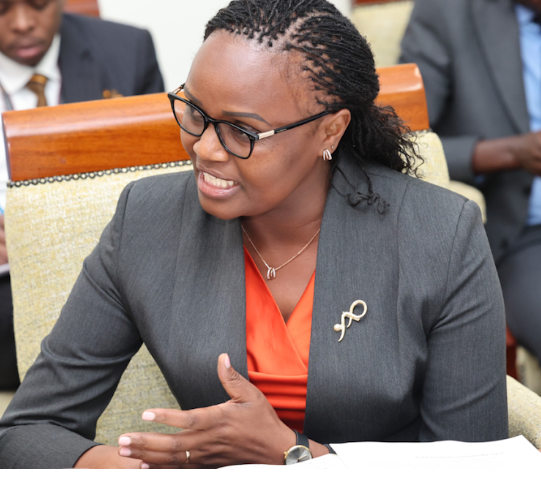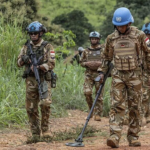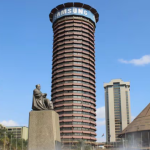Next week, Kenyan experts in the Recognition of Prior Learning (RPL) and other professionals from across Africa will gather in Nairobi for a forum aimed at enhancing the uptake of RPL throughout the continent. The four-day event, running from October 1 to 4, has attracted 32 participants from 20 African countries and four economic regions, including 20 representatives from Kenyan higher learning institutions.
The forum will focus on various aspects of RPL, including its role in lifelong learning policies, the underlying theories, quality assurance processes, and practical implementation in Kenya. The official opening will be led by Education Cabinet Secretary Julius Migos Ogamba.
Kenya has been actively implementing the recognition of prior learning policy across various institutions since its launch in March this year. This initiative is being realized through a ‘Whole of Government Approach,’ with all relevant stakeholders collaborating to enhance its effectiveness.
The Kenya National Qualifications Authority (KNQA) is coordinating the implementation of this policy through awareness campaigns, sensitization efforts, and capacity-building forums. The national rollout of RPL is particularly timely as it aligns with the Kenya Kwanza Government’s Affordable Housing Programme (AHP), which aims to boost the supply of housing units from the current 2% to 50%, translating to an increase from 50,000 to 250,000 housing units annually over the next five years.
The AHP is projected to create over 500,000 job opportunities for young graduates from Technical and Vocational Education and Training (TVET) institutions in the construction sector, as well as in the production of building materials. Additionally, the initiative will strengthen the capacity of the Jua Kali sector to produce high-quality construction products.
RPL is set to revolutionize the workforce by dignifying the Jua Kali artisans. This policy aims to formalize informal skills, transforming them into recognized qualifications and thereby opening local and international employment opportunities for artisans with uncertified skills and competencies.
The initiative is anticipated to create pathways to employment, empowering millions of Kenyans and driving economic development through skills recognition and new opportunities. The RPL policy aims to ensure that knowledge, skills, and competencies acquired through practical work are recognized through the award of certificates.
Implementing this policy serves as a bridge to facilitate the transition from informality to formality, as well as enabling multi-entry and exit points between the education system and the labor market. KNQA Director General Alice Kande emphasized that the policy and guidelines establish standards for assessing and certifying skills and competencies gained through experience.
“This enables our skilled, but uncertified youths to be awarded certificates based on individual competencies, expanding their opportunities in employment and advanced learning,” she stated. So far, 900 graduates have been certified, with a target of about 10,000 new graduates each year.
Kenya’s education and training sector is recognized as one of the best in Africa, evidenced by its leadership in developing and implementing policies, standards, and procedures for the accreditation of institutions, qualifications, and quality assurance across the continent. This framework integrates Basic Education (BE), Technical Vocational Education and Training (TVET), University Education (UE), industrial training, and lifelong learning, enabling better coordination and harmonization of qualifications across various sectors.
KNQA takes pride in creating an enabling environment for lifelong learning, enhancing the quality of qualifications, and establishing international recognition and comparability of qualification systems. The African Union and the European Training Foundation (ETF) are also involved in implementing the African Continental Qualifications Framework (ACQF-II) project, which supports the ACQF as a continental policy instrument.
This project aims to improve the transparency, comparability, and recognition of qualifications, foster collaboration among National Qualifications Frameworks, and promote lifelong learning in Africa. Additionally, it supports the referencing of National Qualifications Frameworks to the African Continental Qualifications Framework and develops innovative tools such as qualifications and credentials platforms, the RPL campaign, and skills data focus (labor market intelligence tools) through training, dialogue, and peer-to-peer sharing forums.
Kenya National Qualifications Framework (KNQF) provides for articulation of the various levels of qualifications, and clear progression pathways for the various forms of certification, including RPL.
KNQF is a comprehensive system that organises all forms of learning, formal, non-formal, and informal, across educational and training sectors and the distinct KNQF levels are defined by level descriptors covering knowledge, skills, and competencies.
KNQF encompasses three sub-frameworks: Academic, TVET, and Industry.
Qualifications are placed within a level by mapping their learning outcomes against the level descriptors and primarily aim to enhance access, equity, quality, and relevance in education and training throughout Kenya.



